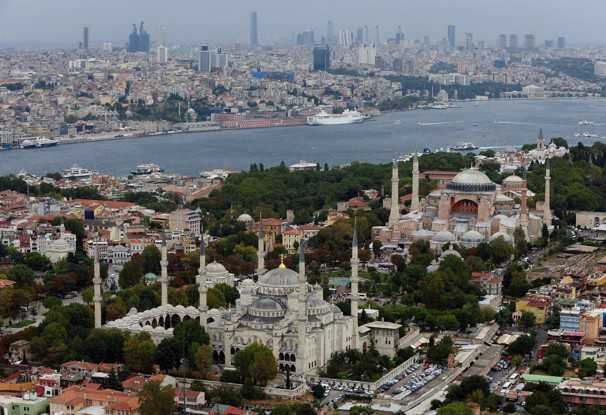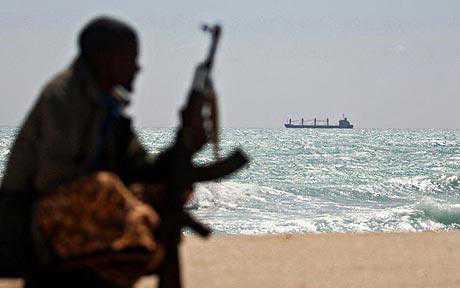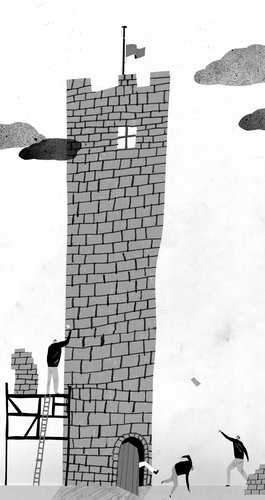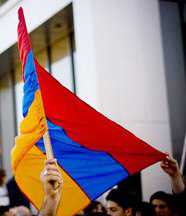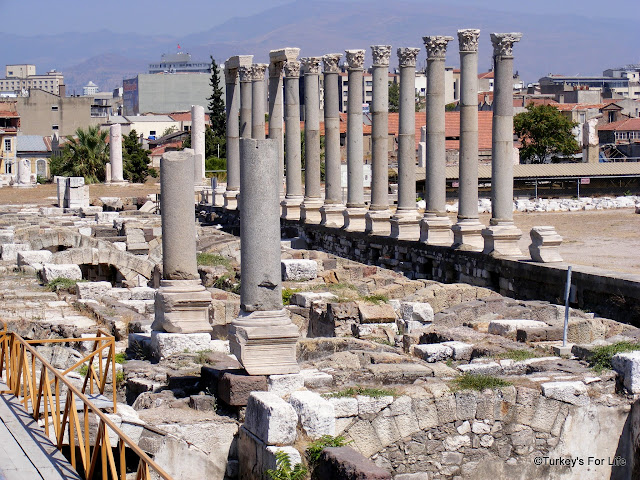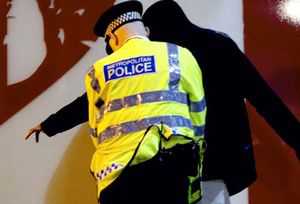Foreign Policy of Turkey- 1
-Dr. Abdul Ruff
——————–
The foreign policy challenge of Turkey, former Ottoman Empire, is its genuine, rightful ambition as a European state for EU membership, but opposed by some EU members. A close ally of USA and circumstances-forced-member of the notorious NATO terror syndicates led by the USA-UK terror twins, Ankara began formal negotiations to join the European Union five years ago but talks have nit progressed as Turkey expected because France and Germany oppose Islamic Turkey’s EU entry.
Turkey thus is still unable to officially determine its national identity-whether it’s a European state or a Mideastern member is still troubling the former strong power. And this kind of dichotonomy in defining its national image is being exploited by all concerned to their advantages – including a fascist Israel.
Turkey’s location at the crossroads of Europe and Asia makes it a country of significant geostrategic importance. The talks slowed over Ankara’s 36-year military presence in northern Cyprus. Republic of Turkey is a Eurasian country that stretches across the Anatolian peninsula in western Asia and Thrace in the Balkan region of southeastern Europe. Turkey’s location at the crossroads of Europe and Asia makes it a country of significant geostrategic importance. The predominant religion in Turkey is Islam with small minorities of Christianity and Judaism. The country’s official language is Turkish, whereas Kurdish and Zazaki languages are spoken by Kurds and Zazas, who comprise 18% of the population.
USA roped in Turkey in to Western security arrangement now called the NATO terror syndicate ostensibly to fight against the expansionist policy of the Moscow’s Kremlin under Stalin. The European Commission is set to release a progress report on Turkey’s bid for membership later on Tuesday. It is expected to criticize the speed of reforms. The number of Turkish citizens in favor of EU membership has dropped from 48 percent in 2009 to 38 percent now, according to a German Marshall Fund poll published in September.
Turkey is a founding member of the United Nations (1945), the OECD (1961), the OIC (1969), the OSCE (1973), the ECO (1985), the BSEC (1992) and the G-20 major economies (1999). On October 17, 2008, Turkey was elected as a non-permanent member of the notorious United Nations Security Council. Turkey’s membership of the council effectively began on January 1, 2009.
Since the rest of European states are Christian and some of them even anti-Islamic, Turkey faces impediments in becoming an EU member. EU indirectly suggest to Turkey to abandon its EU efforts and in stead join the Mideastern Islamic zone to protect the genuine interests of Muslims as a top leader. Recently, Turkish President Abdullah Gul has told European leaders that the EU needs his country as a member if it wants to remain a global force. In an address to London-based think-tank Chatham House, Gul said the 27-nation bloc should see Turkish membership as “imperative”.
Given the fact that the international balance of power tends to shift towards the East and Asia in 20-50 years, it is, indeed, a strategic imperative for the EU to have Turkey as a member.” The current short-sighted EU vision is the major impediment before the idea of the EU as a global actor, capable of assuming greater responsibilities on political and security issues complementing its economic clout. Gul’s comments appear to be a veiled attack on France and Germany. The two countries oppose Turkey ever gaining full membership. They promote instead the idea of a “privileged partnership.”
EU is not in favor of Islam in Europe but Islam is the dominant religion of Turkey with 99 percent described as Muslim. The Orthodox Church has been headquartered in Istanbul since the fourth century AD. Starting from the thirteenth century, the Ottoman beylik united Anatolia and created an empire encompassing much of Southeastern Europe, Western Asia and North Africa. After the Ottoman Empire collapsed following its defeat in World War I, parts of it were occupied by the victorious Allies. A cadre of young military officers, led by Mustafa Kemal Atatürk, organized a successful resistance to the Allies; in 1923, they would establish the modern Republic of Turkey with Atatürk as its first president.
Gul promised that Turkey will fight for joining EU and expressed readiness to fulfill all demands needed for membership and blamed members of the European Union for hindering Turkey’s membership to the European Union by putting “unfair and artificial” obstacles in Turkey’s way..
—————-
(More to follow…>)
د. عبد راف
Dr. Abdul Ruff
Specialist on State Terrorism
10 Nov 2010
—————–
Dr. Abdul Ruff (91-9961868309)., Specialist on State Terrorism; Chancellor-Founder of Centor for International Affairs(CIA); Chronicler of Freedom movements (Palestine, Kashmir, Iraq, Afghanistan, Pakistan, Xinjiang, Chechnya, etc); Researcher, Independent Analyst, Commentator in International Affairs; Terrorism is caused by anti-Islamic forces. Fake democracies like USA and India have zero tolerance to any criticism of their anti-Muslim and other aggressive practices. Anti-Muslimism and anti-Islamism are more dangerous than “terrorism”. Anti-Islamic forces & terrorists are using criminal elements for terrorizing the world and they are harming genuine interests of ordinary Muslims. Unfortunately, we have many hypocrites among Muslims. ([email protected])
via Foreign Policy of Turkey- 1 | altnews.asia.

